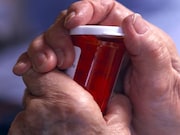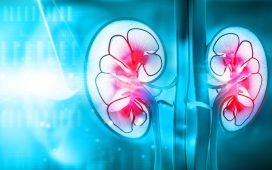Potentially inappropriate prescribing tied to ED visits, adverse drug events, functional decline
WEDNESDAY, May 29, 2019 (HealthDay News) — Potentially inappropriate prescribing (PIP) is tied to increased health care utilization and poor outcomes among older individuals seen in primary care practices, according to a review published in the May/June issue of the Annals of Family Medicine.
Tau Ming Liew, from the Institute of Mental Health in Singapore, and colleagues conducted a systematic literature review to determine if PIP is associated with adverse outcomes among older persons seen in primary care.
The researchers identified eight articles (77,624 participants), all of which had a cohort design and low risk for bias. PIP did not affect mortality (risk ratio [RR], 0.98; 95 percent confidence interval [CI], 0.93 to 1.05). However, PIP was significantly associated with emergency department visits (RR, 1.63; 95 percent CI, 1.32 to 2.00), adverse drug events (RR, 1.34; 95 percent CI, 1.09 to 1.66), functional decline (RR, 1.53; 95 percent CI, 1.08 to 2.18), health-related quality of life (standardized mean difference, −0.26; 95 percent CI, −0.36 to −0.16), and hospitalizations (RR, 1.25; 95 percent CI, 1.09 to 1.44).
“Essentially, the findings showed that the construct of PIP is more than just a consensus of good clinical practice, and they underscored the need to focus on PIP in primary care to improve patient outcomes,” the authors write.
Copyright © 2019 HealthDay. All rights reserved.








